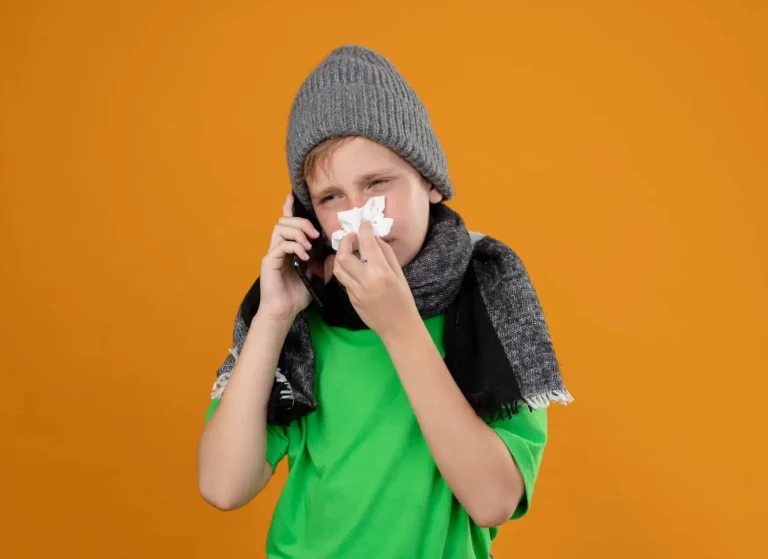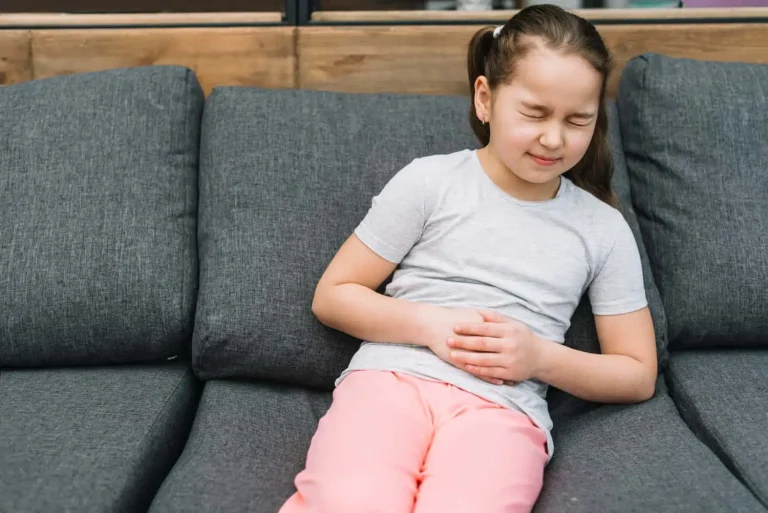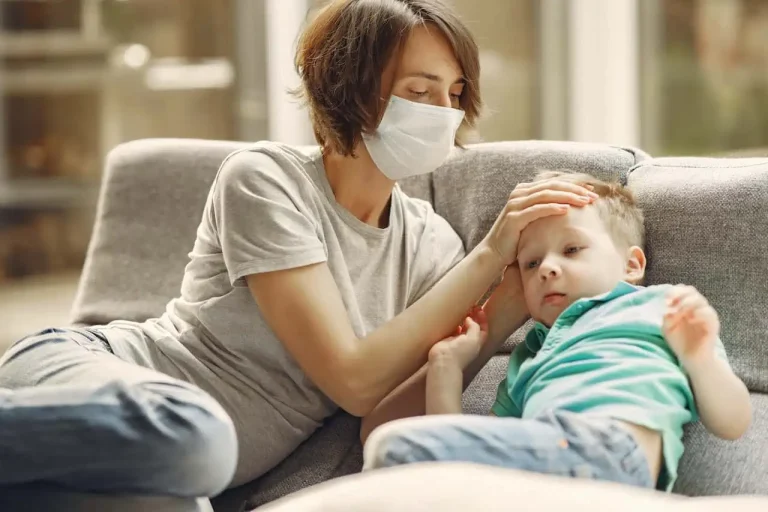“5 Proven Ways to Prevent Gastroenteritis in Your Child”
Introduction:
Gastroenteritis, also known as the stomach flu, is a common illness among children. Gastroenteritis is a widespread illness among children, with an estimated 1.7 billion cases globally each year. In the United States, it is estimated that there are approximately 179 million cases of acute gastroenteritis annually, with a majority of cases occurring in children under the age of 5 years.
Gastroenteritis is a gut and intestine inflammation. It is most commonly caused by a viral, but bacteria or parasites can also cause it.
Causes and Symptoms of Gastroenteritis

Gastroenteritis is usually caused by a virus, such as the norovirus, rotavirus, or adenovirus. These viruses are highly contagious and can be spread through contaminated food, water, or surfaces. Bacteria such as Salmonella or E. coli can also cause gastroenteritis.
The symptoms of gastroenteritis usually appear within 1-2 days after exposure to the virus or bacteria. The most common symptoms include diarrhea, vomiting, stomach pain, and fever. Dehydration is also a common complication, which can cause fatigue, dizziness, and a rapid heartbeat.
How Gastroenteritis Affects Children
Gastroenteritis can be especially dangerous for children, as their bodies are more vulnerable to dehydration. Infants and young children are at a higher risk of developing severe symptoms and complications, such as electrolyte imbalances and kidney failure. Gastroenteritis can also lead to malnutrition and stunted growth if left untreated.
Importance of Preventing Gastroenteritis in Children Preventing gastroenteritis in children is crucial for their health and well-being. The illness can cause discomfort, dehydration, and long-term consequences. By following simple preventive measures, parents can protect their children from the risks of gastroenteritis.
Risks Associated with Gastroenteritis
The risks associated with gastroenteritis are numerous. In addition to dehydration, the illness can cause malnutrition, electrolyte imbalances, and kidney failure. Children with weakened immune system or chronic medical conditions are at a higher risk of developing severe complications.
Impact on Child’s Health and Well-being
Gastroenteritis can have a significant impact on a child’s health and well-being. The illness can cause discomfort, pain, and anxiety, which can affect a child’s mood and behavior. Prolonged symptoms can also interfere with a child’s ability to eat, sleep, and play, which can lead to developmental delays.
Long-Term Consequences of Gastroenteritis
Gastroenteritis can have long-term consequences, especially if left untreated. Chronic diarrhea, malnutrition, and stunted growth can occur if the illness is not properly managed. In rare cases, gastroenteritis can also lead to neurological complications, such as seizures and encephalopathy, which can have permanent effects on a child’s brain function.
Preventing Gastroenteritis in Children
Preventing gastroenteritis in children is possible by following simple preventive measures. Here are some tips to keep your child healthy and reduce the risk of gastroenteritis:
A. Proper Hand Hygiene

While there are many ways to prevent gastroenteritis in children, one of the most effective methods is proper hand hygiene. This simple practice can help prevent the spread of germs and bacteria that can cause gastroenteritis.
What is Proper Hand Hygiene?
Proper hand hygiene involves washing your hands with soap and water or using an alcohol-based hand sanitizer. It is recommended to wash hands for at least 20 seconds and to make sure to scrub all surfaces, including the backs of the hands, between the fingers, and under the nails. Hand sanitizer should be used when soap and water are not available, but it is important to note that it is not a substitute for handwashing.
How Does Proper Hand Hygiene Prevent Gastroenteritis?
Gastroenteritis can be caused by viruses, bacteria, or parasites that are spread through contact with contaminated surfaces, objects, or people. When someone who is infected with gastroenteritis touches a surface or object, they can leave behind germs that can survive for hours or even days. If someone else touches the contaminated surface and then touches their mouth or eats food without washing their hands, they can become infected with gastroenteritis.
Proper hand hygiene can help prevent the spread of gastroenteritis by removing germs from the hands. When hands are washed with soap and water, the soap acts as a surfactant, lifting the germs off the skin and allowing them to be rinsed away with the water. Alcohol-based hand sanitizers work by killing the germs on the hands.
Tips for Teaching Proper Hand Hygiene to Children:
Teaching proper hand hygiene to children is an important step in preventing gastroenteritis. Here are some recommendations for parents and care givers:
1. Lead by Example: Children learn by watching, so it is important to model good hand hygiene practices.
2. Make it Fun: Sing a song or create a fun handwashing routine to make hand hygiene more engaging for children.
3. Use Visual Cues: Hang up posters or pictures that show the proper way to wash hands.
4. Talk About Germs: Help children understand that germs are invisible and can make them sick, so it is important to wash their hands regularly.
5. Use Positive Reinforcement: Praise children when they remember to wash their hands or use hand sanitizer.
B. Food Safety Practices

While gastroenteritis can be caused by a variety of factors, proper food safety practices can help prevent the spread of the illness. Here are some tips on how to keep your children safe from gastroenteritis by following proper food safety practices.
Importance of Food Safety Practices
Proper food safety practices are essential to prevent the spread of gastroenteritis. Contaminated food can harbor harmful bacteria, viruses, and parasites that can cause gastroenteritis. By following food safety practices, you can reduce the risk of contamination and keep your children healthy.
How to Properly Handle and Store Food?
Properly handling and storing food is a crucial step in preventing gastroenteritis. Here are some tips for handling and storing food safely:
1. Wash your hands: Always wash your hands before preparing food, and after handling raw meat, poultry, or fish.
2. Keep raw and cooked food separate: Raw meat, poultry, and fish should be stored separately from ready-to-eat foods to prevent cross-contamination.
3. Cook food to the correct temperature: Use a food thermometer to ensure that food is cooked to the correct temperature to kill harmful bacteria.
4. Refrigerate promptly: Store perishable foods in the refrigerator at 40°F or below to prevent the growth of bacteria.
5. Use safe water: Use only safe and clean water for cooking, drinking, and washing fruits and vegetables.
Common Food Safety Mistakes to Avoid
Even with the best intentions, mistakes can happen when it comes to food safety. Here are some common food safety mistakes to avoid:
1. Not washing hands: Always wash your hands before and after handling food, and after using the bathroom, changing diapers, or handling pets.
2. Cross-contamination: Use separate cutting boards and utensils for raw meat, poultry, and fish, and ready-to-eat foods.
3. Leaving food out too long: Perishable food should not be left out at room temperature for more than two hours, and one hour if the temperature is above 90°F.
4. Not storing food properly: Store perishable food in the refrigerator at 40°F or below to prevent the growth of harmful bacteria.
5. Using expired food: Check expiration dates and throw out any food that has expired.
C. Proper Vaccinations

While proper hygiene and food safety practices can help prevent gastroenteritis, vaccinations are also an important tool in preventing the spread of the illness. Here’s what you need to know about the role of vaccinations in preventing gastroenteritis in children.
Importance of Vaccinations
Vaccinations are a crucial part of public health efforts to prevent the spread of infectious diseases, including gastroenteritis. Vaccines work by stimulating the immune system to produce antibodies against specific viruses, bacteria, or parasites. When a person is exposed to the actual pathogen, their immune system can quickly recognize and fight it off, preventing illness or reducing its severity.
Vaccines for Gastroenteritis Prevention
There are several vaccines available that can help prevent gastroenteritis in children. Here are a few of the most common:
1. Rotavirus vaccine: The rotavirus vaccine is recommended for all infants at two, four, and six months of age. It can prevent severe diarrhea and vomiting caused by the rotavirus, which is a common cause of gastroenteritis in young children.
2. Hepatitis A vaccine: The hepatitis A vaccine is recommended for all children at one year of age. It can prevent a type of viral gastroenteritis that is spread through contaminated food or water.
3. Typhoid Vaccine: The typhoid vaccine is recommended for children who are traveling to areas where typhoid fever is common. It can prevent a type of bacterial gastroenteritis that is spread through contaminated food or water.
4. Cholera Vaccine: The cholera vaccine is recommended for children who are traveling to areas where cholera is common. It can prevent a type of bacterial gastroenteritis that is spread through contaminated food or water.
Scheduling Vaccinations:
It’s important to follow the recommended vaccination schedule to ensure that your child is protected against gastroenteritis and other infectious diseases. Here are some tips for scheduling vaccinations:
1. Check with your Pediatrician: Your pediatrician can provide guidance on the recommended vaccination schedule for your child, based on their age, health, and other factors.
2. Keep a Record: Keep a record of your child’s vaccinations, including the date, type of vaccine, and provider. This can help ensure that your child receives all the recommended vaccinations on schedule.
3. Follow up on Missed Vaccinations: If your child misses a scheduled vaccination, follow up with your pediatrician to schedule a make-up appointment as soon as possible.
4. Consider Catch-up Vaccinations: If your child has missed some vaccinations, they may need catch-up vaccinations to ensure that they are fully protected against gastroenteritis and other infectious diseases.
D. Environmental Hygiene

Importance of Environmental Hygiene
Environmental hygiene refers to the practices and procedures used to clean and disinfect surfaces and objects to reduce the spread of harmful pathogens. This includes areas in the home, daycare, school, and other environments where children may come into contact with germs. Proper environmental hygiene is essential in preventing the spread of gastroenteritis, as many of the pathogens that cause the illness can survive on surfaces for extended periods.
How to Clean and Disinfect Surfaces?
Cleaning and disinfecting surfaces is an essential step in preventing the spread of gastroenteritis. Here’s how to do it effectively:
1. Clean First: Before disinfecting, surfaces should be cleaned to remove any dirt, grime, or other contaminants. Use soap and water or a household cleaner to wipe down surfaces, and make sure to pay attention to commonly touched areas, such as doorknobs, light switches, and faucet handles.
2. Disinfect Next: After cleaning, use a disinfectant to kill any remaining germs on surfaces. Look for disinfectants that are approved by the Environmental Protection Agency (EPA) and follow the instructions on the label for proper use.
3. Use Proper Techniques: When cleaning and disinfecting surfaces, it’s important to use proper techniques to ensure that all areas are thoroughly cleaned. For example, use a clean cloth or sponge for each surface, and allow the disinfectant to sit for the recommended amount of time before wiping it off.
Commonly Overlooked Areas for Cleaning
In addition to commonly touched surfaces, there are several areas that are often overlooked when it comes to environmental hygiene. Here are some examples:
1. Toys and Play Areas: Children’s toys and play areas can harbor a significant number of germs, especially if they are shared among multiple children. Make sure to clean and disinfect toys and play areas regularly.
2. Electronic Devices: Phones, tablets, and other electronic devices can also harbor germs, as they are frequently touched and carried around. Use disinfectant wipes or other approved methods to clean and disinfect these devices regularly.
3. Upholstered Furniture: Upholstered furniture, such as couches and chairs, can also harbor germs. Use a disinfectant spray or other approved method to clean and disinfect these surfaces.
E. Personal Hygiene

Personal hygiene refers to the practices and habits that individuals use to maintain cleanliness and prevent the spread of germs. It includes activities such as handwashing, bathing, and dental hygiene. Proper personal hygiene is essential in preventing the spread of gastroenteritis, as many of the pathogens that cause the illness can be spread through contact with contaminated surfaces or bodily fluids.
Proper Toilet Habits
One of the most important personal hygiene practices for preventing gastroenteritis is proper toilet habits. Here’s what you need to know:
1. Wash Hands: Always wash hands after using the toilet, and encourage children to do the same. Use soap and warm water, and make sure to wash all areas of the hands thoroughly.
2. Flush Properly: Make sure to flush the toilet properly after use to prevent the spread of germs.
3. Wipe Carefully: When wiping, be sure to wipe from front to back to prevent the spread of germs from the anus to the urinary tract.
4. Use a Clean Towel: Use a clean towel or toilet paper to dry off after using the toilet.
When to Keep Children Home from School?
Another important aspect of personal hygiene in preventing gastroenteritis is knowing when to keep children home from school. Here are some guidelines to follow:
1. Fever: If your child has a fever, they should stay home until the fever has been gone for at least 24 hours.
2. Diarrhea or Vomiting: If your child has diarrhea or vomiting, they should stay home until symptoms have subsided for at least 24 hours.
3. Contagious Illness: If your child has a contagious illness, such as the flu or a cold, they should stay home until symptoms have subsided and they are no longer contagious.
FAQs?
Q1. What Is the Difference Between Gastroenteritis and Food Poisoning?
A1.Gastroenteritis and food poisoning are two different illnesses, but they share some common symptoms. Gastroenteritis is an infection of the intestines caused by a virus, bacteria, or parasite. Food poisoning is caused by eating contaminated food, which can contain harmful bacteria, viruses, or toxins.
Q2. How Long Does Gastroenteritis Last in Children?
A2.The duration of gastroenteritis can vary depending on the cause of the illness and the severity of the symptoms. In most cases, gastroenteritis lasts for a few days to a week. However, some children may experience symptoms for up to two weeks.
Q3. Can Gastroenteritis Be Prevented Through Diet?
A3.While there is no specific diet that can prevent gastroenteritis, there are some steps that can be taken to reduce the risk of infection. It is important to avoid eating undercooked or raw foods, especially meat and eggs, as these can contain harmful bacteria. It is also important to wash fruits and vegetables thoroughly before eating. Q4. Are Over-the-Counter Medications Effective in Treating Gastroenteritis?
A4.Over-the-counter medications such as anti-diarrheal drugs and anti-nausea medications can help alleviate some of the symptoms of gastroenteritis. However, these medications are not a cure for the illness, and they do not address the underlying cause of the infection.
Q5. What Should I Do If My Child Develops Gastroenteritis?
A5.If your child develops symptoms of gastroenteritis, such as diarrhea, vomiting, and stomach pain, it is important to keep them hydrated by encouraging them to drink plenty of fluids. You should also keep them home from school or daycare until they have been symptom-free for at least 24 hours. If their symptoms persist or worsen, it is important to consult with a healthcare provider.
Conclusion
Preventing gastroenteritis in children is important for their health and well-being. By following proper hand hygiene, food safety practices, environmental hygiene, personal hygiene practices, and ensuring proper vaccinations, you can significantly reduce the risk of infection. In summary, here are the five proven ways to prevent gastroenteritis in children:
1. Wash hands regularly with soap and water.
2. Properly handle and store food to prevent contamination.
3. Ensure a clean and hygienic environment by regularly disinfecting surfaces.
4. Encourage proper toilet habits and keep sick children home from school.
5. Ensure proper vaccinations are received on schedule.
Remember, prevention is key when it comes to gastroenteritis. By implementing these practices, you can help protect your child from this common illness and promote overall health and well-being.







